

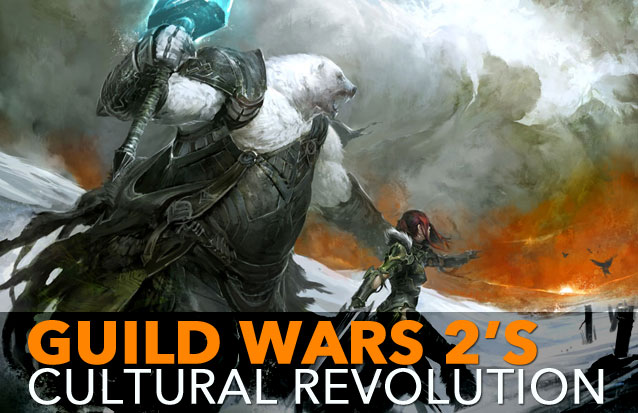
ArenaNet has been taking a heavy-approach to their handling of “exploitations” of Guild Wars 2’s economy. “We take a harsh stance on exploiters because this decision should be easy: find an exploit, report the exploit and move on,” says an official blog post on the state of the game’s economy.
This suggests that the role of players—all players, at all times—is to consider the long-term health of the game. It’s certainly a noble ideal, and it’s one that ArenaNet apparently believes they can enforce with a “harsh stance.” Yet this rubs me the wrong way. The philosophy may be noble, but the act of banning players for “exploits” strikes me as fundamentally illiberal (in the classical sense), but taking place within a classically liberally model.
Guild Wars 2 uses the “Black Lion Trading Company” as its conventional MMORPG auction house. These auction houses act as pure distillations of capitalism. Players work to find or create items, and sell those items for the best price they possibly can. And on the other side, players looking to avoid the work of finding or crafting those items will spend their in-game money on them, looking, of course, for the lowest price possible. When ArenaNet’s John Smith talks about an economy that can be “ruined,” he’s talking about the common prices the capitalist player-driven economy.
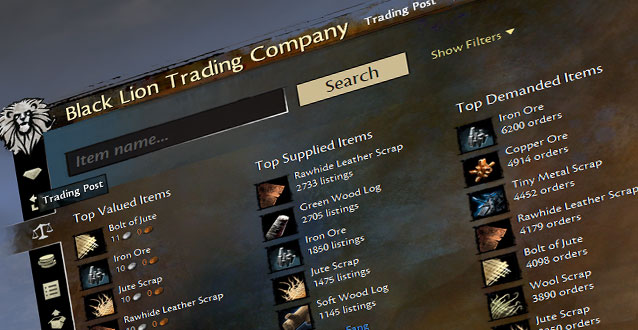
Capitalism is a “liberal” philosophy. To simplify a necessarily large amount, classical liberalism is a set of political (democracy), economic (capitalism), and other philosophies that came to prominence during the Enlightenment. Liberalism is built around the idea that self-interest is good, and that by giving people the freedom to do what they want, they’ll work to make their lives and likely the lives of the people around them better. The logical assumption is that people will behave in this fashion regardless. The role of the government or authority under this philosophy is to step in the case of people acting in ways detrimental to the well-being of others. For example, you can drink as much as you want at home, but make too much noise, get violent, or try to drive a car, and the government has laws that allow them to stop you.
Beyond potential threats to health and well-being, liberal philosophy works to prevent disaster that there may not be laws for. The systems it builds are aimed at ensuring that the people in charge cannot, through apathy, ignorance, or malevolence, ruin things for everyone else. It is entirely legal to have a bad or even insane president under the American constitution, for example, but the checks and balances (including impeachment) that limit the powers of the office theoretically will prevent them from doing as much damage as would happen under an authoritarian system.
Guild Wars 2’s use of a capitalist auction house seems to place it within that liberal context. Almost every video game ever does as well: act within your own self-interest, and you’ll maximize your abilities within the game. Obviously this includes making money within the game, which allows you to improve your crafting or buy better items. Players who attempt to maximum the money that they can make within Guild Wars 2’s in-game systems are acting according to their own self-interest. Some of that maximizing may end up hurting the game’s economy in the long run, yes. In a liberal economic theory, this behavior would need to be regulated so that it couldn’t happen, yes. But ArenaNet is permanently banning players for exploits.
(It’s worth noting that Guild Wars 2 doesn’t have to include a capitalist economy. It could shut down the Black Lion Trading Post. A barter economy would immediately appear, but even that could be eliminated by not allowing players to trade items with each other, only non-player vendors. Once you go that far, it would be easy to eliminate in-game money entirely, and have a system where everything a player needs can be acquired through exploration or looting. ArenaNet made a deliberate decision to include a capitalist economy in Guild Wars 2.
It’s also worth noting that that intentional decision gives them benefits in real-world capitalistic terms—players can buy gems with real money and use it to purchase in-game items and money. ArenaNet combating inflation is in their monetary self-interest as well.)
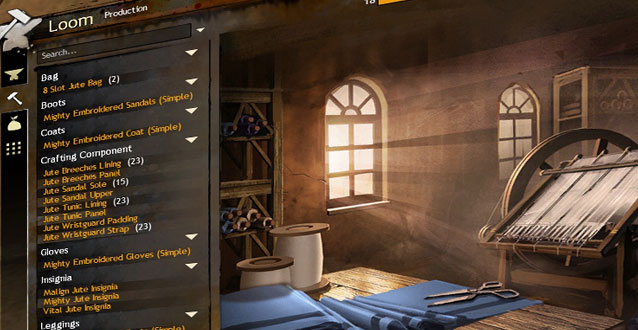
Smith gives two examples in the ArenaNet blog post, one hypothetical, one from the game’s first week. His hypothetical example:
For example, a player discovers a recipe that allows them to craft items from vendor goods for only 50 copper and then sell back the crafted item for 100 copper. The player now has an infinite loop of value gain. If this were working as intended the game’s currency would hyper-inflate very, very quickly as all players swarmed to this recipe to generate gold.
This certainly sounds exploitative, but there are two flaws in using it as the Platonic ideal of exploitation. First, players have been trained by their life in a capitalist society and dozens of different video games to know that this is wise in-game behavior. Suikoden II had an entire subsection of the game where you bought otherwise useless items from one vendor and traveled to another town in order to sell them at a profit. There are even games named “Capitalism” that are about finding exploitable niches in markets and making as much money as you can.
Second, if ArenaNet considers this an “exploit,” then they’re the cause of the exploit. They created a game system that benefits players. If players use that system, how is the players’ fault?
The practical example given was the karma weapon vendor exploit from the first week of the game. Players who complete quests receive “karma,” which works as in-game coin, except it can only be used on vendors, and can’t be transferred to other players. Initially, powerful weapons what were supposed to cost 35,000 karma were available for only 21 karma points. Many players purchased a lot of them. Those who bought in the hundreds were permanently banned (although ArenaNet later allowed them to apologize and change that to a temporary ban).
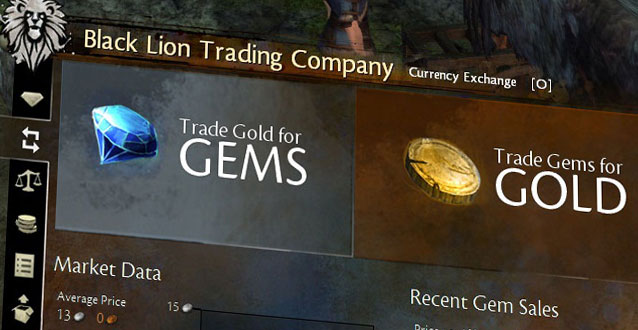
While I can certainly see how this might be considered an exploit, I have issue with the permanent bans, and the language in the leniency post that implies that this is a one-time display but ArenaNet was still doing the right thing. First of all, the initial error was theirs, not the players’. Second, the players are behaving in normal game and capitalist fashion—find advantages and utilize them. Third, ArenaNet had the ability to rectify this. They could easily delete all purchased weapons and refund the karma after correcting the price (alternately, they could roll back player accounts). Instead, ArenaNet found the players morally culpable, and took away their ability to play a game they had purchased.
ArenaNet and its supporters justify this by declaring that they’re acting in the long-term interests of the game’s economy. By banning players who “exploit” the game, they’re sending a message that they want an healthier community. “Moving forward, please make sure you that when you see an exploitable part of the game, you report it and do not attempt to benefit from it,” says the letter about the karma weapons. This is a form of social engineering, an attempt to convince every player in the game to be a better person and think about the betterment of the game world. A capitalist system is built around the idea that people are fundamentally self-serving, that they will exploit what they can, and the damage from the exploitation can be mitigated by laws and regulations. Guild Wars 2 is built around the idea that people are fundamentally good, so they will constantly be avoiding exploits, and that those players who don’t abide by that ideal should be removed.
Perhaps this is an ideal we should all be working toward. Perhaps it’s naïve and authoritarian, especially given how easy blog and forum posts are for players to miss.. Either way, it’s diametrically opposed to the ideal capitalist economy presented in Guild Wars 2, a system which makes exploitation inevitable.



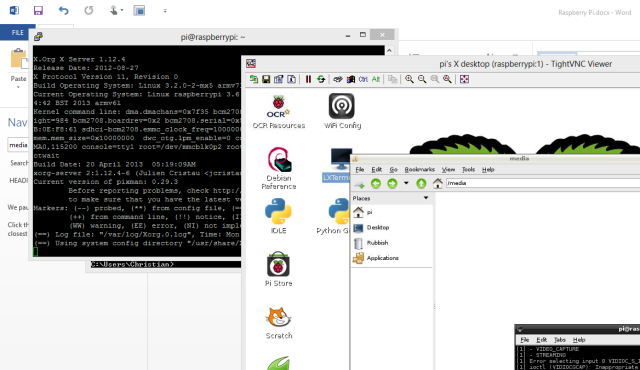
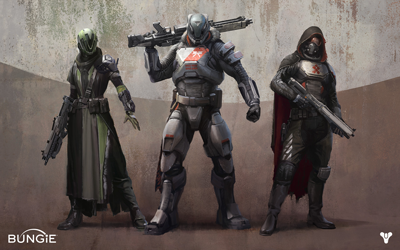 How to reach Destiny level 30 very quickly for PlayStation and Xbox
How to reach Destiny level 30 very quickly for PlayStation and Xbox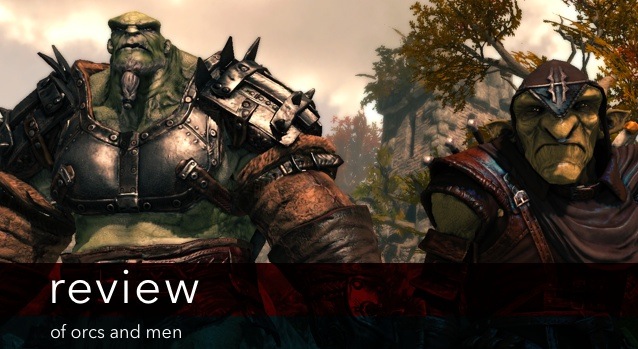 Review: Of Orcs and Men
Review: Of Orcs and Men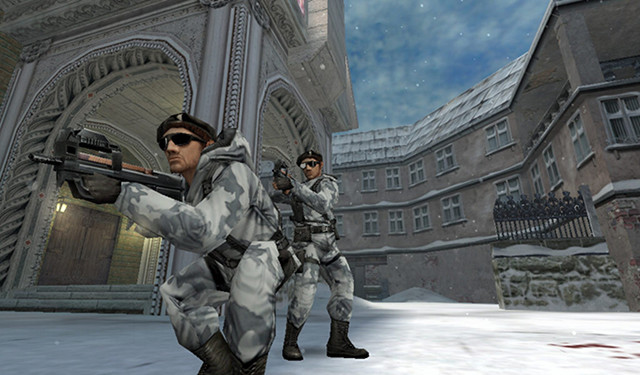 10 Incredible Steam Games You Can Buy For Under $10
10 Incredible Steam Games You Can Buy For Under $10 Referee Rubys Guide to Pets
Referee Rubys Guide to Pets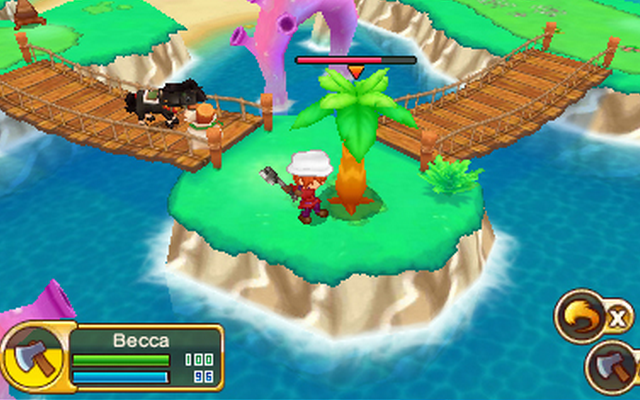 Long Trip Ahead? Pass Your Travels With Epic 3DS Games
Long Trip Ahead? Pass Your Travels With Epic 3DS Games